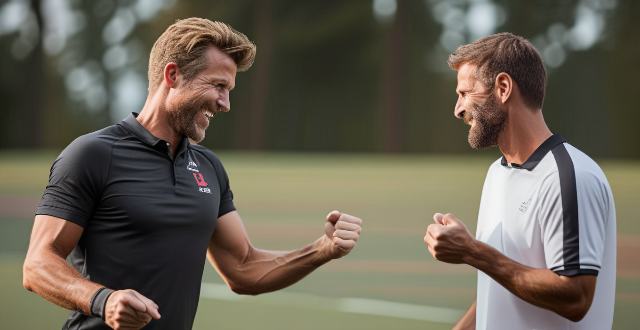In summary, this article explores the impact of mental toughness on athletic performance at a competitive level. It highlights the benefits of mental toughness, including enhanced focus and concentration, improved resilience and coping mechanisms, increased confidence and self-belief, and better decision making under pressure. The article also provides practical tips for developing these essential skills through mindfulness techniques, visualization, positive self-talk, scenario training, and continuous self-improvement. Overall, mental toughness is crucial for athletes to perform at their best and achieve success in their chosen sport.

The Impact of Mental Toughness on Athletic Performance at a Competitive Level
Mental toughness is a crucial factor that can significantly impact an athlete's performance at a competitive level. It refers to the ability to maintain focus, composure, and resilience in the face of pressure, adversity, or challenges. In this response, we will explore how mental toughness influences athletic performance and provide practical tips for developing this essential skill.
1. Enhanced Focus and Concentration
One of the primary benefits of mental toughness is improved focus and concentration during competitions. Athletes with strong mental toughness are better able to block out distractions, stay present in the moment, and concentrate on their goals. This enhanced focus allows them to perform at their best when it matters most.
Tips for Developing Enhanced Focus:
- Practice mindfulness techniques such as meditation or deep breathing exercises to improve your ability to stay present and focused.
- Create a pre-competition routine that helps you prepare mentally and physically for the event.
- Visualize yourself succeeding in your sport, focusing on the key elements of your performance.
2. Improved Resilience and Coping Mechanisms
Another crucial aspect of mental toughness is the ability to bounce back from setbacks and overcome obstacles. Athletes who possess this trait are more likely to persevere through challenging times, learn from their mistakes, and continue working towards their goals. They also tend to have effective coping mechanisms for dealing with stress, anxiety, or other negative emotions that may arise during competitions.
Tips for Developing Resilience:
- Embrace failure as an opportunity to learn and grow rather than a source of shame or embarrassment.
- Surround yourself with supportive people who encourage you to push past your limits and believe in your potential.
- Develop a positive self-talk habit, focusing on your strengths and accomplishments rather than dwelling on setbacks or criticisms.
3. Increased Confidence and Self-Belief
Mental toughness fosters a strong sense of confidence and self-belief in athletes. When athletes believe in their abilities, they are more likely to take risks, seize opportunities, and perform at their highest level. This self-assuredness can also help them handle pressure situations effectively, allowing them to thrive under stressful conditions.
Tips for Developing Confidence:
- Set realistic goals and celebrate your progress towards achieving them.
- Practice self-affirmations and positive self-talk to reinforce your belief in your abilities.
- Seek feedback from coaches, teammates, or other trusted individuals to identify areas for improvement and build on your strengths.
4. Better Decision Making Under Pressure
Athletes with mental toughness tend to make better decisions under pressure, which can be critical in high-stakes situations. They are able to assess options quickly, weigh the potential consequences, and choose the best course of action based on their goals and priorities. This ability to think clearly and decisively can give them a significant advantage over competitors who may struggle with decision-making under stress.
Tips for Developing Better Decision Making:
- Practice scenario training, where you simulate different game situations and practice making decisions in a controlled environment.
- Analyze past performances to identify patterns in your decision-making processes and develop strategies for improving them.
- Trust your instincts and rely on your experience and knowledge of the sport to guide your choices during competitions.
In conclusion, mental toughness plays a vital role in athletic performance at a competitive level. By enhancing focus, resilience, confidence, and decision-making skills, athletes can elevate their game and achieve greater success in their chosen sport. Through deliberate practice and continuous self-improvement, anyone can develop these essential qualities and unlock their full potential as an athlete.